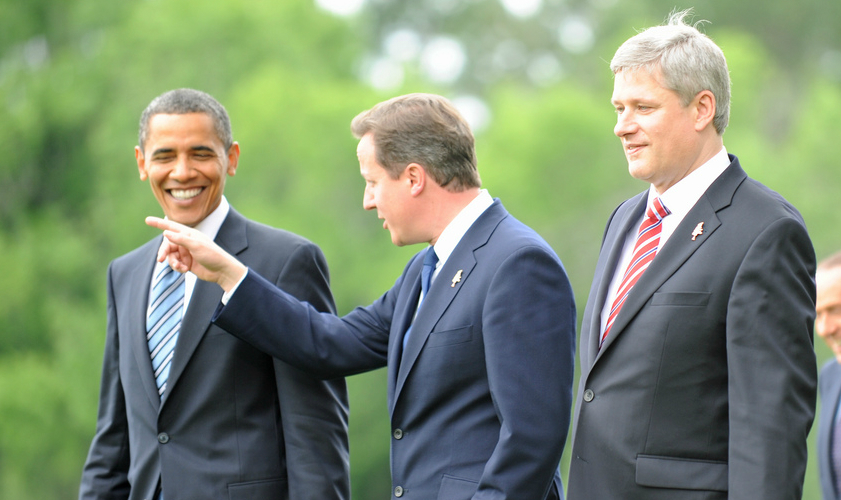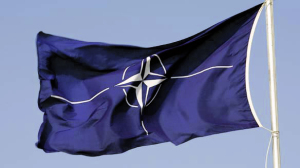By: Zachary Wolfraim

The election of Justin Trudeau and the Liberal Party on 19 October marks the end of a decade of Prime Minister Harper’s dominance in Ottawa. After a grueling 78-day campaign, voters convincingly rejected the Harper government and put a majority Liberal government in place for the first time in 15 years. This campaign has largely been a referendum on Harper’s leadership and one of the areas that has evinced the most visceral reaction from his opponents has been in foreign policy.
Both the left-wing Liberal and NDP parties, when discussing foreign policy, were more than willing to (rightly) point to Canada’s diminishing role in the world. Prime Minister Harper and his supporters have been quick to state that their foreign policy has been more forceful in defending Canadian interests internationally and has intentionally steered away from previous government’s ‘fence-sitting’ and moral equivocation. Nonetheless, it is hard to dispute that on the foreign policy file, while Canada has remained an active member of the international community, its diplomatic initiatives have been wanting.
In discussing foreign policy, both Liberal Party leader Justin Trudeau and NDP leader Thomas Mulcair stated that Canada needs to reprioritize peacekeeping as a vital component. This is a mistake. The mythological Pearsonian peacekeeping tradition to which they are referring, died with the Cold War. Trying to apply its tenets to the current international environment would invariably fail. That said, this presents an interesting opportunity for whoever forms the next government to start thinking seriously about foreign policy.
The current international environment is, to put it lightly, a mess. With a retrenched United States, rising China, revanchist Russia, and a refugee crisis in Europe spurred by instability through the Middle East it is hard to see where exactly a peacekeeping force would offer added value. A military commitment to NATO’s presence in Eastern Europe and participation in coalition operations in Iraq and Syria give Canada international visibility, however, this doesn’t necessarily translate into influence. Utilising hard power as the key means to promote Canada’s interests and values internationally is neither sustainable nor feasible.
While Canada’s military has had over a decade as the go-to tool by which to implement Canadian foreign policy aims, it requires significant investment and strengthening. A long decade of action in Afghanistan combined with a high tempo of operations means that the military needs revitalisation. Similarly, a reinvigoration of the diplomatic service and a re-examination of Canada’s foreign aid programs would offer a more robust and holistic approach to foreign policy priorities. This is an opportunity by which Canada can not only rebuild its diplomatic reflexes but also seriously re-engage with the international forums such as the UN and NATO which act as force multipliers. Indeed, there is a risk for Canada that as a comparatively small country (population-wise), it can have difficulty making its voice heard amidst the international chaos. Offering a constructive presence in these forums is a way by which Canada builds international influence and enables it to punch above its weight.
In doing so, this makes Canada’s opinion consequential again. One of the key criticisms of Harper’s foreign policy was that it represented bullhorn diplomacy – this is our position, take it or leave it. Supporters of this style of foreign policy suggest that this means Canada gets taken seriously, but in reality, it generally means that Canada is left shouting from the margins. Treating diplomacy like any other type of negotiation is a misjudgment at best, particularly given that the consequences of failing to negotiate effectively can be catastrophic. Moreover, by throwing the military at every major international security issue, it automatically escalates both Canada’s commitment by risking Canadian lives and military assets in a way that diplomatic initiatives tend not to, but also raises the likelihood of deeper military involvement.
Invoking a role as international peacekeeper has become the solution of choice for countries that want to remain internationally engaged while limiting their investment in the military. The UK is already going down this route as Minister of Defence Michael Fallon indicated recently, he intends to commit the UK’s stretched defense capabilities to future peacekeeping missions. However, this should not be seen as a sustainable avenue to pursue a foreign policy agenda in the current international environment, particularly given that there is currently very little peace to keep. Unless a commitment to peacekeeping is coupled with a commitment to streamline the UN’s capabilities and also has the support of other Security Council members, it is unlikely to offer a serious method by which to assert security policy.
Ultimately, it needs to be remembered that in many ways, the international system is pay-to-play and underinvestment usually reaps diminished influence. Canada’s incoming Liberal government will need to do more than re-hash ‘traditional’ foreign policy roles but instead decide what Canada’s international priorities are going to be and how it will achieve them over the next four years. It will be a serious undertaking to recalibrate Canadian foreign policy after years of neglecting both military and diplomatic capabilities, particularly while also tackling the ambitious domestic agenda that the Liberal party articulated during the campaign. Given that it has been a decade since Canada’s last foreign policy review it may be time to revisit what its key foreign policy priorities should be heading forward.
Zachary Wolfraim is a PhD researcher in the Department of War Studies, King’s College London, where he focuses on the role of narratives in shaping foreign policy in relation to NATO operations. He previously worked as a consultant in NATO Headquarters on operations in Afghanistan, Iraq and Libya. You can follow him at @Zachwol.

